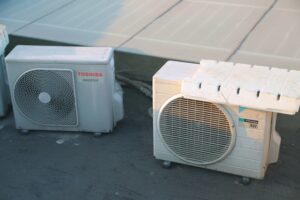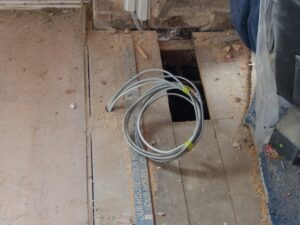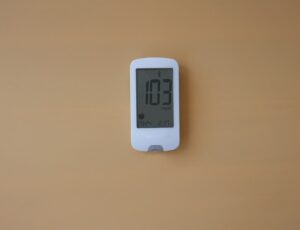If you’re experiencing issues with your furnace, you might be wondering if your heat exchanger can be repaired. The answer is, it depends. In some cases, a cracked heat exchanger can be repaired, but in other cases, it may need to be replaced. The best way to determine the best course of action is to contact a professional HVAC technician.
When it comes to repairing or replacing a heat exchanger, safety is of the utmost importance. A cracked heat exchanger can release dangerous gases into your home or business, so it’s essential to have the issue addressed as soon as possible.
We are experts in HVAC and plumbing services for both residential and commercial customers. We understand that your heating and cooling system is a crucial part of your home or business, and we strive to provide exceptional quality and great value. Our team of professionals will work with you to determine the best possible system to meet your individual needs and budget.
Understanding Heat Exchangers
Components and Function
A heat exchanger is a vital component in HVAC systems. It is responsible for transferring heat from the combustion process to the air that flows through the system. The heat exchanger is designed to transfer heat without mixing two or more fluids, ensuring efficient heat exchange without the fluids coming into direct contact with each other.
The heat exchanger works by having two separate channels, one for the hot fluid and one for the cold fluid. The hot fluid flows through one channel, while the cold fluid flows through the other. The two fluids are separated by a thin metal wall, which allows heat to transfer from the hot fluid to the cold fluid.
Common Types of Damage
Heat exchangers are susceptible to damage over time due to exposure to high temperatures and corrosive gases. The most common types of damage are corrosion, rust, and cracks. Corrosion occurs when the metal is exposed to moisture and oxygen, which causes it to break down over time. Rust is a form of corrosion that occurs when iron or steel is exposed to moisture and oxygen. Cracks can occur due to thermal stress or physical damage.
If you suspect that your heat exchanger is damaged, it is important to have it inspected by a professional HVAC technician. Our team of professionals strives for exceptional quality and great value. We work to provide the best possible system to meet individual needs and budget. With our expertise, we can determine the best course of action for repairing or replacing your heat exchanger.
Understanding the components and function of a heat exchanger is important for maintaining the efficiency and safety of your HVAC system. If you suspect damage to your heat exchanger, contact us.
Signs of Heat Exchanger Failure
If you suspect that your furnace’s heat exchanger is failing, there are several signs to look out for. These signs can be categorized into three main sub-sections, including visual indicators, performance issues, and carbon monoxide detection.
Visual Indicators
One of the most apparent signs of heat exchanger failure is visible cracks or holes. You may be able to see these by inspecting the heat exchanger yourself, or you can have a professional perform an inspection for you. Cracks can also cause the heat exchanger to become distorted or warped, which can be seen by examining the shape and structure of the exchanger.
Performance Issues
Another sign of heat exchanger failure is a decline in furnace performance. This can manifest in several ways, including uneven heating, persistent cold spots, and reduced heating capacity. You may also notice that the furnace has to work harder to achieve the desired temperature, which can lead to increased energy bills. Unusual noises can also be a sign of heat exchanger failure, such as popping or banging sounds.
Carbon Monoxide Detection
A failing heat exchanger can also lead to a buildup of combustion gases, including carbon monoxide. Carbon monoxide is a colorless, odorless gas that can be deadly in high concentrations. If you have a carbon monoxide alarm in your home, it may alert you to the presence of this gas. However, it’s essential to note that not all carbon monoxide alarms are created equal, and some may not detect low levels of the gas. Therefore, it’s crucial to have your furnace inspected regularly by a professional.
Repair vs. Replacement
When it comes to heat exchangers, the decision to repair or replace can be a difficult one. There are several factors to consider, including the extent of the damage, the age of the system, and the cost involved. In this section, we will explore the key considerations when deciding between repair and replacement.
Assessing the Damage
The first step in deciding whether to repair or replace a heat exchanger is to assess the damage. Cracks or holes in the heat exchanger are the most common forms of damage. If the damage is minor and not affecting the efficiency of the system, repair may be the best option. However, if the damage is significant, it may be more cost-effective to replace the entire unit.
Cost Considerations
Cost is another important factor to consider when deciding between repair and replacement. In general, repair costs are lower than replacement costs. However, if the heat exchanger is old or if the repair is extensive, the cost of repair may be close to or even exceed the cost of replacement. It is important to consider the long-term cost implications of each option.
Long-Term Implications
The long-term implications of repair versus replacement should also be considered. While repair may be a more cost-effective option in the short term, a new heat exchanger may be more efficient and save you money in the long run. Additionally, a new heat exchanger may come with a warranty that covers parts and labor, providing peace of mind and protection against future repairs.
If you are unsure whether to repair or replace your heat exchanger, it is best to consult with a professional.
Professional Repair Process
If you suspect that your heat exchanger is damaged, it is crucial to have it inspected by a professional.
Inspection and Testing
Our inspection process involves a comprehensive examination of the heat exchanger, including the combustion gas and ducts. We use specialized equipment to identify any cracks, corrosion, or other damage that may be present. Our technicians will also perform a combustion analysis to ensure that the heat exchanger is functioning properly and that there are no safety concerns.
Repair Techniques
If we determine that your heat exchanger can be repaired, we will use the most effective and reliable techniques available. Our team is highly trained in a variety of repair methods, including welding, patching, and tube replacement. We will work with you to determine the best approach based on your specific needs and budget.
Ensuring Safety Post-Repair
Here at Excel Mechanical, safety is our top priority. After repairing your heat exchanger, we will perform a thorough safety check to ensure that it is functioning properly and that there are no safety concerns. We will also provide you with guidance on how to maintain your heat exchanger to ensure that it continues to operate safely and efficiently.
Maintaining Your Heat Exchanger
Regular maintenance of your heat exchanger is essential to ensure it functions efficiently and safely. Neglecting your heat exchanger can result in cracks, which can lead to carbon monoxide leaks and other safety hazards.
Regular Maintenance
It’s important to schedule regular maintenance for your heat exchanger to keep it in good condition. Regular maintenance can help identify any potential issues before they become major problems. Our team can provide regular maintenance services for both residential and commercial properties. We are professionals who strive for exceptional quality and great value, working to provide the best possible system to meet individual needs and budget.
During regular maintenance, our team will inspect your heat exchanger for any signs of wear and tear, including cracks and other damage. We will also check for any issues related to heat cycling, which can cause your heat exchanger to expand and contract, leading to cracks and other damage.
Preventive Measures
In addition to regular maintenance, there are several preventive measures you can take to ensure your heat exchanger stays in good condition. These include:
- Changing your air filter regularly to prevent dust and debris from accumulating on your heat exchanger.
- Keeping your heat exchanger clean and free of debris.
- Ensuring proper ventilation in your home or business to prevent the buildup of carbon monoxide and other harmful gases.
We are committed to providing the best possible HVAC and plumbing services for both residential and commercial properties. We understand the importance of maintaining your heat exchanger to ensure it functions efficiently and safely. Contact us today to schedule regular maintenance for your heat exchanger and ensure it stays in good condition for years to come.




